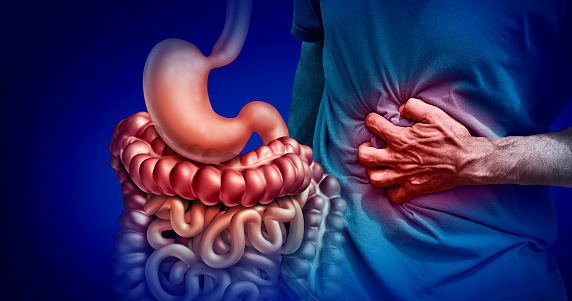
Leaky Gut Syndrome (LGS) is a major cause of disease and dysfunction in modern society, accounts for at least 50% of chronic complaints, as confirmed by laboratory tests.
In LGS, the epithelium on the villi of the small intestine becomes inflamed and irritated, which allows metabolic and microbial toxins of the small intestines to flood into the blood stream. This event compromises the liver, the lymphatic system, and the immune response including the endocrine system.
Some of the most incurable diseases are caused by this exact mechanism, where the body attacks its own tissues.
This is commonly called auto-immune disease.
It is often the primary cause of the following common conditions: asthma, food allergies, chronic sinusitis, eczema, urticaria, migraine, irritable bowel, fungal disorders, fibromyalgia, and inflammatory joint disorders including rheumatoid arthritis are just a few of the diseases that can originate with leaky gut. It also contributes to PMS, uterine fibroid, and breast fibroid.
Leaky Gut Syndrome is often the real basis for chronic fatigue syndrome and pediatric immune deficiencies.
Leaky Gut Syndrome is reaching epidemic proportions within the population. Historically, the only way bowel toxins entered the blood stream was through trauma, for example by sword or spear.
This quickly led to septicemia that might be treatable, or more probably, ended in death. Outside of trauma, the body maintained a wonderfully effective selective barrier in the small intestine, one that allowed nutrients to enter, but kept out metabolic wastes and microbial toxins rampant in the intestines.
What Modern Event Allowed Such A Break-Down?
Primarily it has been antibiotics, secondarily non-steroidal anti-inflammatory drugs (NSAIDs, Motrin, Aleve and Advil) with NSAIDs being the
major cause of leaky gut because they so viciously inflame the intestinal lining, causing a widening of the spaces between cells and sometimes hemorrhaging.
Other common causes are chemotherapy, ingested alcohol, inhaled formaldehyde from a new carpet, food allergens, stress emotions, lactase deficiency, gluten/gliaden allergy, abnormal gut flora (bacteria, parasites, yeasts).
The first antibiotic, penicillin, did not enter mainstream health care until 1939. Since the 50s and 60s, antibiotic use has been frantically prescribed for every infection and inflammation, particularly pediatric ear infection, bronchitis, and sore throat.
It is sadly ironic that most of these infections are viral in nature, and not only are the antibiotics damaging, but they are ultimately unnecessary. Antibiotics should be considered a hospitalization level medicine, when bacteria have entered the blood, bone, or organ.
Antibiotics Destroy Beneficial Bacteria
Antibiotics create their damage in two ways. The first is by destroying beneficial bacteria. The small intestine and large intestine host over five hundred different kinds of beneficial bacteria. These bacteria perform hundreds of functions required for healthy metabolism and immune response.
Through enzyme secretions, bacteria transform metabolic and microbial wastes before they are discharged by the body. These wastes include cellular debris, hormones, chemical wastes, bile, pus accumulations, viral toxins, bacterial toxins, etc.
For example, the body creates bile not only as a lubricant to flush wastes out of the liver, but also, to detoxify many of the poisons accumulating in the liver. Bile however is extremely damaging to large intestine epithelium.
When bile enters the small intestine via the common bile duct, beneficial bacteria break the bile salts down into a less toxic compound, making it non-dangerous by the time it reaches the large intestine.
When you take antibiotics you
destroy these bacteria and the bile salts freely enter and damage the large intestine. I believe this contributes significantly to the high incidence of colon cancer plaguing today's society.
Beneficial bacteria also break down hormone secretions that are discharged from the liver to the small intestine. If you lack the bacteria to break down estrogen and the intestinal permeability has been altered, the patient is now reabsorbing estrogens in their original state.
The body will deposit these in estrogen sensitive areas such as the breast, uterus, or ovaries, contributing, if not causing, fibroids and tumors. The same scenario is responsible for premenstrual syndrome as well.
Healthy mucosa allows nutrients to pass the barrier while blocking the entry of toxins.
Functional Medicine University
Enjoy Dr. Tent's take on the exploding autoimmune epidemic
https://www.youtube.com/watch?v=-aHRMjVHggI